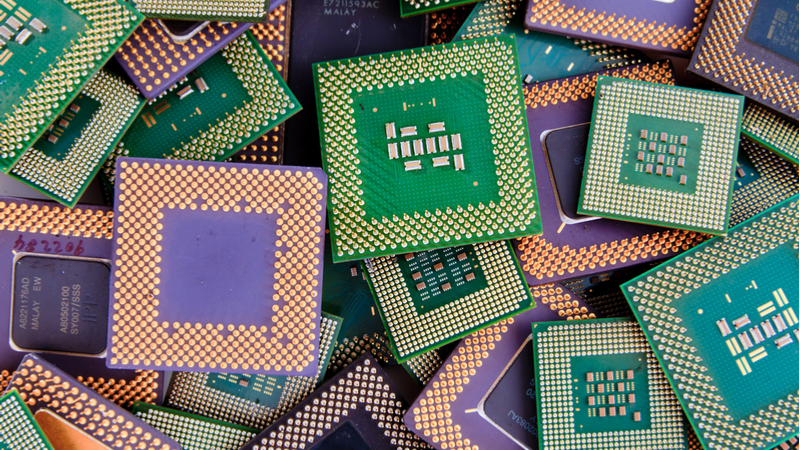
House and Senate negotiators are slated to begin their formal conferencing process this week to hammer out a final version of legislation that would deliver billions of Federal funding to innovation-directed programs and jump-start United States semiconductor production, Senate Majority Leader Chuck Schumer, D-N.Y., said April 25.
Senate and House leadership earlier this month announced their selection of 107 members of the conference committee that is charged with melding the two versions of the closely-related bills – dubbed USICA in the Senate and COMPETES in the House.
“This week the Senate will begin a formal conference committee with the House,” Sen. Schumer said. “If there’s anything that Republicans and Democrats should be able to agree on and move speedily on, it should be a bipartisan bill that increases jobs, boosts innovation, and gets tough on the Chinese Communist Party while shoring up the chips manufacturing here at home.”
From a tech perspective, the showpieces of the legislation are $52 billion in semiconductor industry funding, money for a new tech directorate at the National Science Foundation, and big boosts in Federal research and development funding.
The Big Buildup
The legislation began its journey as the Endless Frontiers Act in the Senate last year, morphing into the United States Innovation and Competition Act (USICA) by the time it passed the chamber last July. The House initially opted to pass a pair of USICA alternatives that were eventually folded into the House’s America Creating Opportunity, Pre-Eminence in Technology, and Economic Strength (COMPETES) Act.
The House passed the America COMPETES Act in February, sending it to the Senate. The Senate then took up the bill at the end of March, swapped its text with its own USICA legislation, then passed that version on March 29. That set the stage for the official conference request from the House, starting a process that was first announced last November.
“This legislation has been well in the works for well over a year, and I know members from both sides want to see us enter a conference as soon as we can,” Sen. Schumer said. “As the week progresses, Republicans must come to the table and show they’re willing to work with us to finalize a vote.”
While USICA passed the Senate with a bipartisan 68-32 vote, the House-passed America COMPETES bill was approved more narrowly along party lines by a 222-210 vote, with just one Republican voting for the bill and one Democrat voting against. This has set up a dynamic with Senate Republicans expecting concessions from their House counterparts to get to a bill that more closely mirrors USICA.
That mindset has been evident in statements from Senate Minority Leader Mitch McConnell, R-Ky., before the break, and from conferee Sen. John Cornyn, R-Texas, on the Senate floor April 25. However, there is still ample evidence of an eagerness to find common ground and pass a bill.
“The conference committee process for the China competitiveness bill will begin soon, and I’m eager to work with the fellow members of the conference committee to reach a strong bipartisan bill,” Sen. Cornyn said on the floor. “The long list of unrelated partisan provisions in the House bill, though, have no place, in my opinion, in the final agreement. But I’m ready to get the ball running so we can pass a bill that serves the American people, our economy, and, most importantly, our national security.”
Including Cornyn, a total of 107 conferees – 26 Senators, evenly split among parties, and 81 Representatives, with 50 Democrats and 31 Republicans, were named before the break.
“Both parties in both chambers have already announced their choices as to who should serve as conferees, so the time has come to finish this, so we can send competitiveness legislation to the president’s desk for his signature,” Sen. Schumer said. “Our economy and American consumers will be far, far better off for it.”
